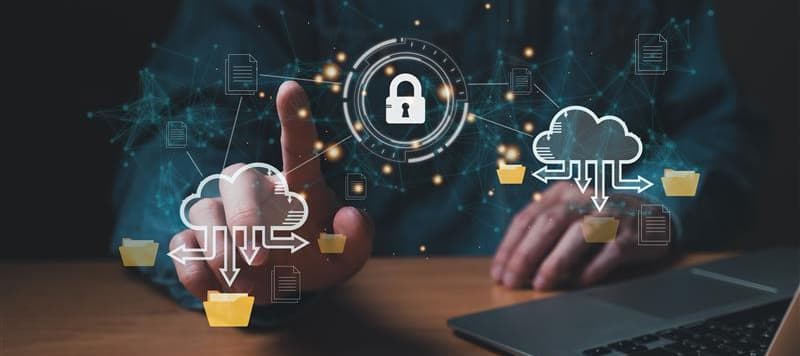What does the future of work look like in a post-COVID world? It’s guaranteed to involve a lot more teleconferencing and remote work, and some companies will undoubtedly manage the transition better than others.
To see what separates the smoother transitions from the rockier ones, we asked some of our data security experts—and leaders within their organizations—to weigh in on what our post-COVID work lives may look like. In conjunction with partner company Webroot™, their answers make up a series we’re calling The Future of Work.
What are hallmarks of organizations that will successfully navigate our new workplace realities?
Carbonite™ VP of product management Jamie Zajac believes three attributes will determine how successful companies are in navigating the new realities of work: agility, security, and culture. With a global recession threatening to thin the herd of viable corporations, these qualities may be instrumental in separating the wheat from the chaff.
- Agility – “The need to quickly deploy new infrastructure, and scale existing infrastructure,” says Zajac “will be of paramount importance in the immediate future and in the post-COVID era. For example, increasing VPN users and cloud-service quotas for higher use to accommodate more remote workers. The faster a company can move, the less downtime and disruption they face.”
- Security – Zajac notes that “the threat landscape is constantly evolving, but when you have a massive event that changes the world, the threats change even quicker. How companies respond to these security threats and the pressures they put on businesses is critical. Keeping users educated on the latest threats and how to avoid them will have a bearing on a company’s success. With the uncertainty surrounding COVID-19 and a remote workforce, ‘cyber resilience’ will become a familiar term among executives.”
- Culture – “There is simply no substitute for having a good corporate culture that is flexible and resilient in the face of adversity,” says Zajac. “It’s more necessary than ever in the face of challenges on the scale we’re facing today. Companies better able to weather rapid change through constant communication and cohesion will perform better than those without that company culture groundwork already in place.”
Long-term, how will office culture change? What policies should change once everyone is physically back at work?
“Speaking of office cultures, we’re likely to see significant changes in organizational norms. Because cohesion and communication are so important, companies must figure out ways to preserve them even in the absence of shared physical workspaces. Even as we do begin returning to the office, the “normal” we came to expect before the coronavirus outbreak will still be a long way off.
As we return to our previous work routines, we may still be subject to social distance best practices and that may mean that we must limit interactions in the office," says Zajac. "This will continue to promote a remote and distant workforce, necessitating tools that make collaboration simple and secure."
On top of tools, training will be another essential element of remote work culture. Without an IT department physically on-hand to troubleshoot a malfunctioning device, or strict network security controls in place to prevent malware infections, each of us will need to up our game when it comes to security and productivity.
And because we know scams are popping up in response to COVID-19, security awareness training is that much more important. Knowing how to spot the numerous phishing techniques cybercriminals now use will help workers protect their company’s data and its financials.
“I think that a big change will be in training of end users and how to use more services independently,” predicts Zajac. “Since we may want to limit interactions, online training on topics about how to use applications and how to remain secure and avoid phishing will help everyone.”
It all comes down to cyber resilience
One thing that won’t be changed by the coronavirus outbreak: the high value of data and the importance of protecting it. Remote workforces put different stresses our data and devices, but for many businesses the information they possess will continue to be their most valuable asset.
That’s why we’re extending free trials on select business products to 60 days for a limited time. Visit our free trials page or contact us for more information.










